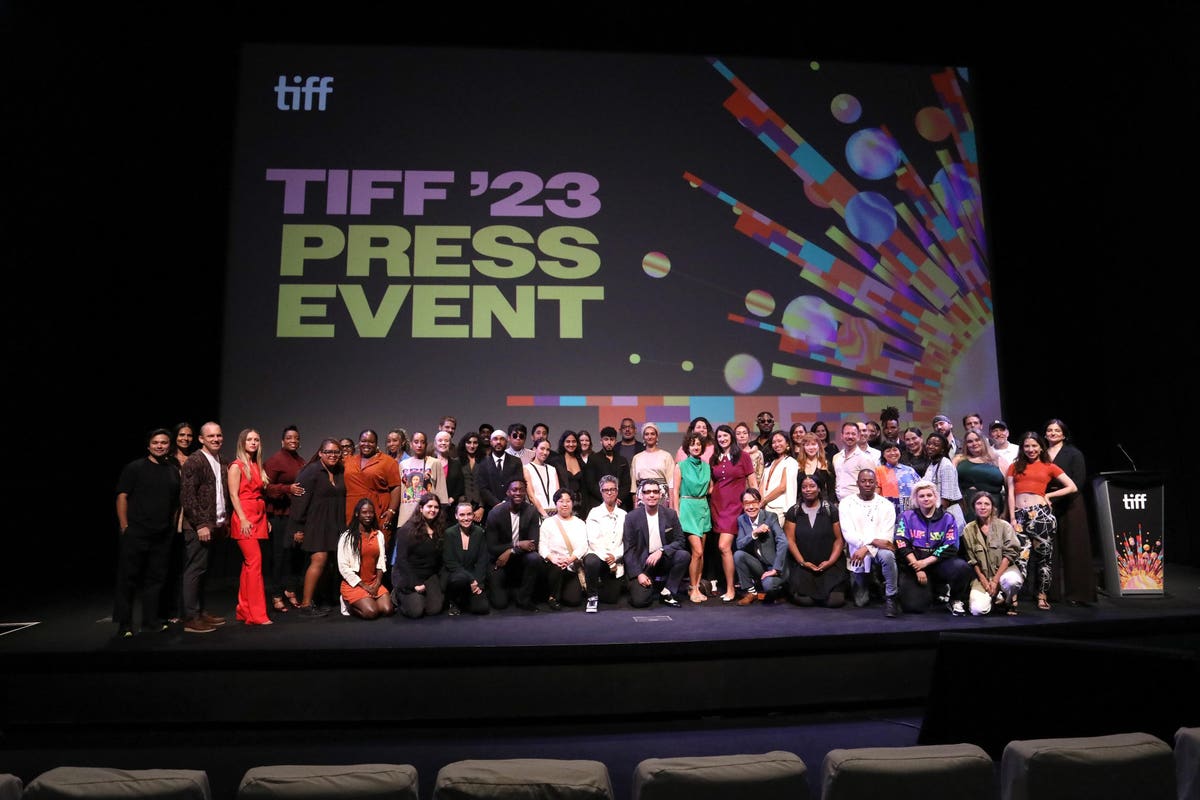Every year, industry professionals and cinephiles alike look forward to film festival season. But as the ongoing WGA strike continues, festival fanatics might be star-struck and not in the way you expect.
The superficial allure of major festivals like Toronto International Film Festival, Telluride Film Festival and Venice International Film Festival comes from star power. From red carpet snapshots to big-time premieres, well-known actors and creatives often attend and promote their indie darlings at festivals, providing all the “Hollywood glitz and glam” there is to offer. This cinema sheen reaches the world audience at large, captivating them with pictures that tell the story of glamorous premieres, where the next great amazing film is discovered and VIP parties where the room is filled with celebrity and hope. But that is censored by the real impact of the SAG-AFTRA and WGA strike.
What the normal festival fan may not appreciate is that the strike rules reach beyond simply shooting the movie. Under the SAG-AFTRA strike rules, actors are prohibited from promoting or attending events including these major festivals. This applies to completed films unless the film is eligible and has received a direct interim waiver from SAG. The waiver in this instance is only reserved for truly independent films that have no affiliation or distribution with an AMPTP studio and did not shoot in North America to the extent where it qualifies as a WGA covered project. And that means most films premiering at these marquee festivals could not even qualify for a waiver (even if they are uniquely able to cut through the SAG red tape of obtaining one).
While the festival glitz and glamour and social media feed of the “cool factor” is one obvious loss, the greater loss is the underlying foundation of business which normally occurs at these festivals. That essential business is deeply compromised by this circumstance. Independent films are financed by equity and in some instances by debt financing with real maturity dates and a clear necessity to use the festival platform to procure the sale and to ensure that revenue and a commercial release are a viable possibility. Without casts parading, promoting and creating awareness for their films, buyers may be reluctant to buy in during this distressed and uncertain market. Furthermore, future audiences are missing the opportunity to begin their typical awareness of these independent movies that are about to be discovered.
This leaves financiers, producers, buyers and the entire festival ecosystem in an economically and emotionally depressed scenario. Halle Mariner, an up-and-coming script and literary agent, at the APA agency is facing a bittersweet reality of attending Toronto Film Festival (TIFF) next week to support her director client in the premiere of Queen of My Dreams.
“My client’s film is premiering, and it is important that I am there to support the film,” Mariner says. “But the reality of the strike puts a damper on the celebration with the nerve-racking reality that the commercial release may likely get delayed or compromised.”
While delayed releases are already emerging, some major studios have the financial security and tolerance to take on a delayed release as a cost of business. Take for instance, Warner Bros. Pictures, which is pushing its sensational sequel to the Dune franchise to the year 2024. However, independent films stand to lose everything because of the timing of the strike. There is a reliance on sales at these festivals for the indie filmmaker, setting forth a path toward distribution and a release date where financiers and producers can expect some form of recoupment and monetization. But without a definitive end date of the strike, cast promotion remains suspended and buyers may be reluctant to engage in meaningful sales discussions. The impact of that on an independent film could mean that it truly does not see the light of day.
For seasoned professionals like Navid McIlhargey, the head of content for Productivity Media and an independent producer, that means this year’s TIFF will be a challenge.
McIlhargey says there is ”no ability to build hype and awareness…and [that] is hurting independent financiers.” He goes on to say that it also presents another roadblock to films that are in prep and often discussed and percolating at these types of festivals because “casting is on pause.”
While the solidarity is appreciated by all those involved, there is a casualty to emerging directors, undistributed independent films and future projects that find their packaging elements. And unfortunately, that takes the celebration out of these normally joyous festivals for emerging independent films.
Read the full article here





